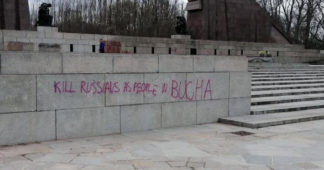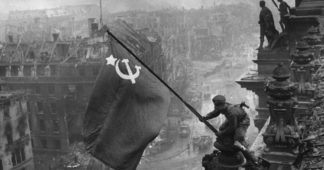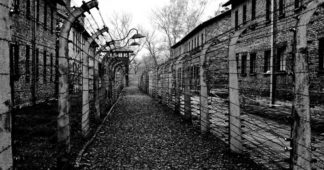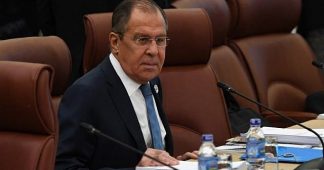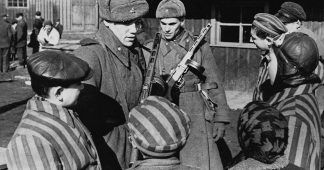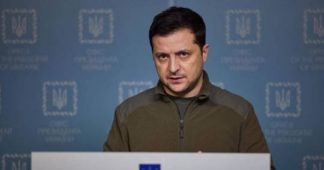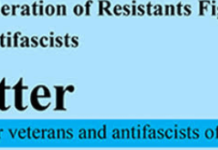FIR is outraged by current developments in Germany that instrumentalize the commemoration of the liberation from fascism and war for the foreign policy interests of the German government.
After representatives of the Russian Federation were explicitly uninvited to the celebrations for the liberation of the Auschwitz extermination camp in Poland in 2020, instead it was fantasized that it was Ukrainian troops who had liberated the camp – what historical illiteracy, because units of the 2nd Ukrainian Front reached the camp, the liberators and their current political representatives have also been marginalized in every form in Germany since the beginning of the Ukraine war.
At the liberation celebrations at the Sachsenhausen, Ravensbrück and Buchenwald memorials and also in Mauthausen in Austria, the Russian and Belarusian embassies were told they were not welcome by decision of the memorial administrations. At Buchenwald concentration camp, the Soviet prisoners, some of whom were housed in the so-called “prisoner of war camp”, made up the largest foreign group with 15,000 prisoners. Over 8,400 political commissars of the Soviet army were murdered in the execution facility in the horse stables. But none of this counts when it comes to ostracizing representatives of the Russian Federation or Belarus.
This year, the scandalous behaviour was further exacerbated by the Federal Foreign Office, under Ms Baerbock, who is now only in temporary office and is responsible neither for domestic policy nor for culture and remembrance policy, issuing a “handout” to districts and municipalities explicitly recommending that no invitations be extended to Russian or Belarusian diplomats and, if necessary, that “uninvited guests” be sent away again with reference to “domestic authority”. According to the media, the recommendation for action states that, on the one hand, there should be no official participation in events in Germany at the invitation of Russia and Belarus and, on the other hand, no invitations to Russian and Belarusian representatives to commemorative events organized by federal, state and local authorities.
Interestingly, the Federal Foreign Office was not prepared to comment on this when asked by the press. Media representatives therefore had to obtain these handouts from the Brandenburg state government. According to media reports, the text states that Germany accepts responsibility for the terrible crimes of the Nazi regime and is committed to ensuring that the victims are properly honored in Russia, Belarus and worldwide. The implicit ban on inviting diplomats from the Russian Federation and Belarus is intended to oppose “historical revisionist falsification and Russian or Belarusian propaganda”. It can only be described as perverse when these handouts run under the heading of preventing a “political instrumentalization of remembrance”. Is it not instrumentalization when the federal government interferes with the sovereignty of the federal states and local authorities in order to impose its view of history?
It is to be hoped that local authorities and memorial sites in Germany will be prepared to face up to the historical reality and take responsibility for an appropriate commemoration – together with the liberators and in memory of the sacrifices that the Soviet armed forces had to make during this liberation. The Battle of the Seelow Heights, in which around 33,000 Soviet soldiers sacrificed their lives to fight their way to Berlin against fierce resistance from fascist troops, is being commemorated these days. It was gratifying to see that local representatives were not deterred by the German government from laying wreaths there together with the Ambassador of the Russian Federation and diplomats from Belarus.
The fact that there has been renewed public speculation in Berlin in recent weeks about how Soviet memorials to the liberators and liberation could be cleared away shows the moral inconsistency of German commemorative policy
The FIR emphasizes once again that it will do everything to ensure that the commemoration of the men and women who fought for the defeat of Nazi barbarism within the framework of all parts of the anti-Hitler coalition can be appropriately organized, and this includes the appreciative invitation of diplomatic representatives from all countries involved.
We remind our readers that publication of articles on our site does not mean that we agree with what is written. Our policy is to publish anything which we consider of interest, so as to assist our readers in forming their opinions. Sometimes we even publish articles with which we totally disagree, since we believe it is important for our readers to be informed on as wide a spectrum of views as possible.

